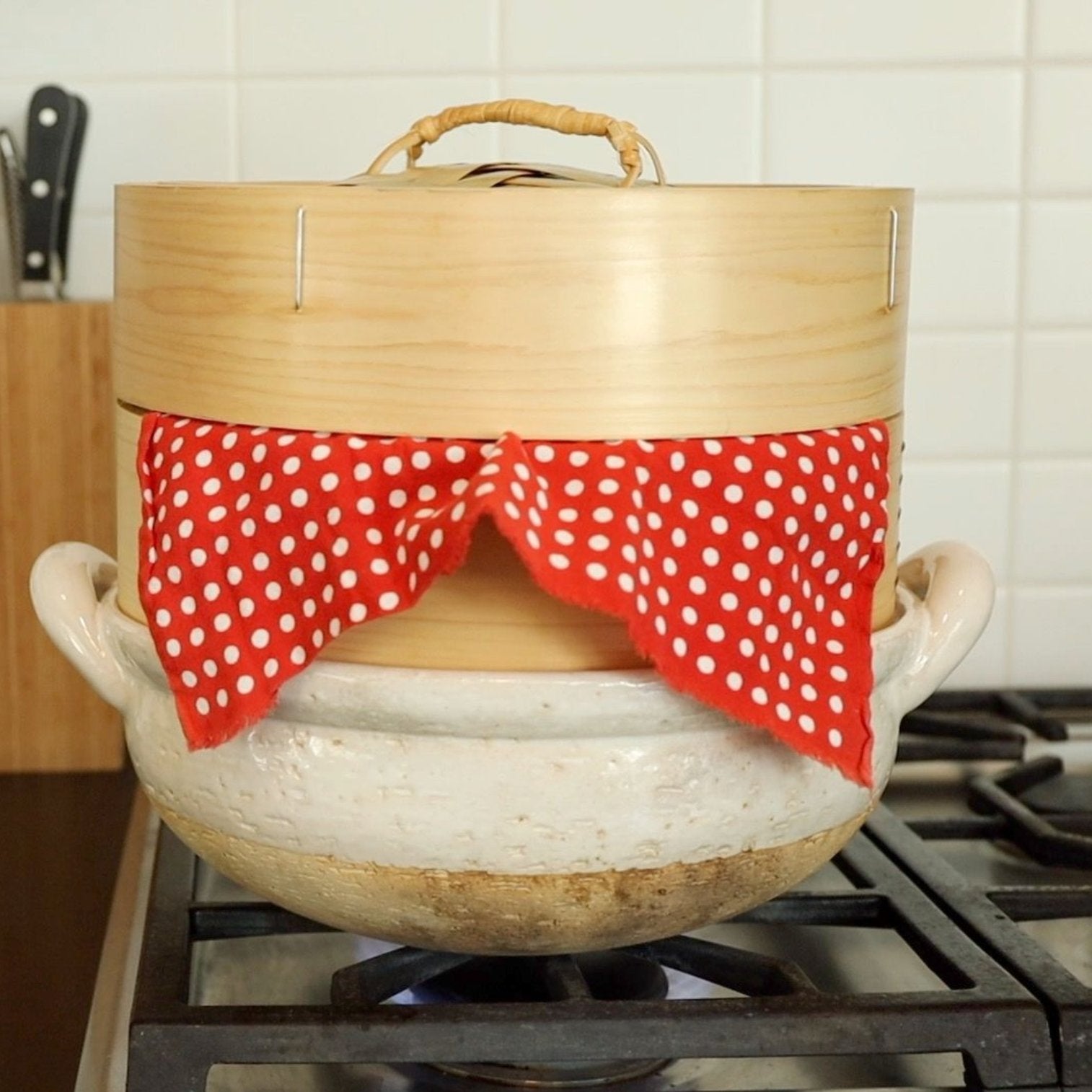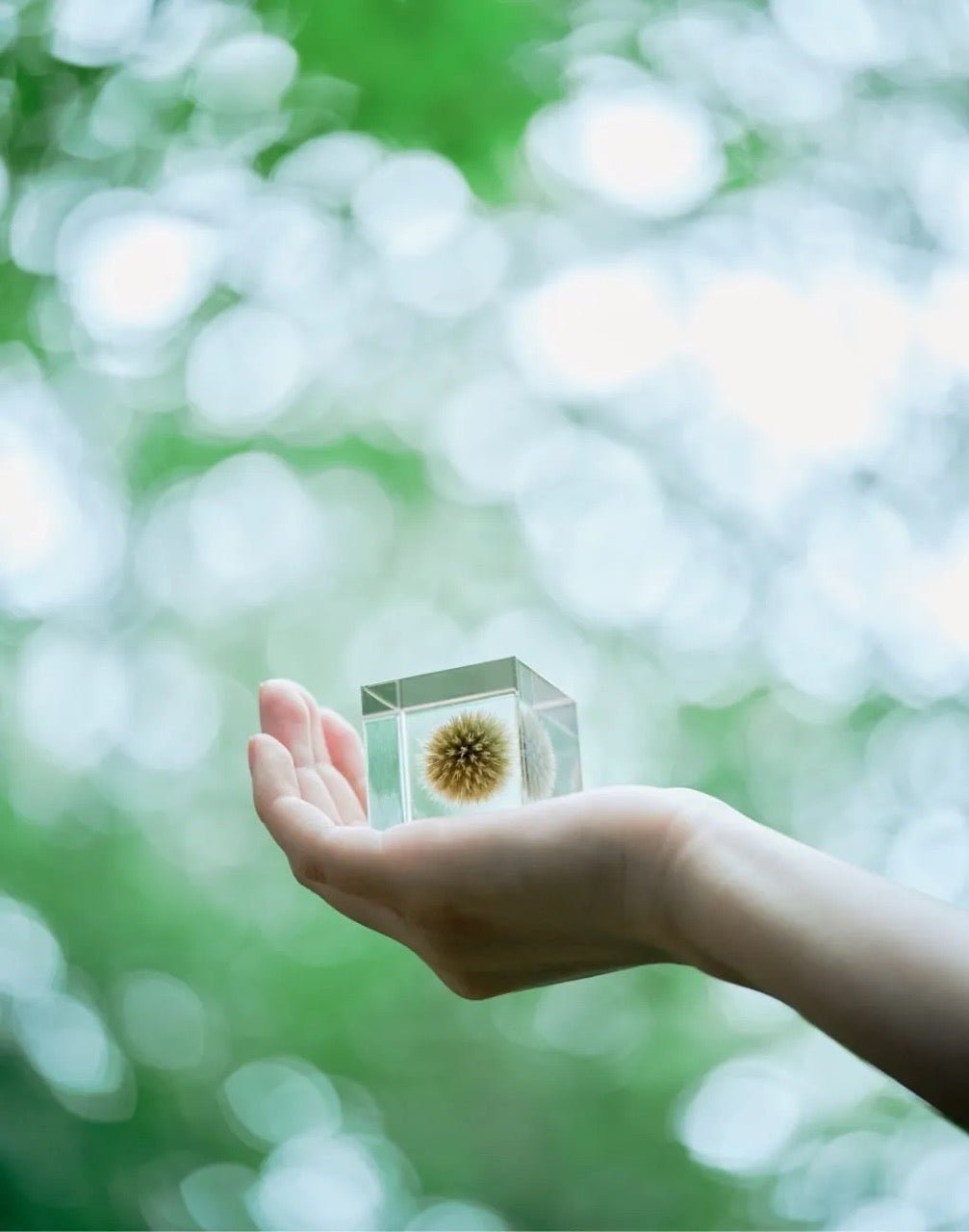Helping the environment often seems out of reach. Our problems can feel massive and complex, and it's difficult to see how our small choices affect big problems. But what if there was a way to remind ourselves daily that practical choices and better alternatives are out there?
At Tortoise, it turns out that one of our best alternatives was an arm's length away, because we always have a trusty tenugui cloth nearby. Watch our short video 'Tenugui All Day' and celebrate Earth Day with these five practical Earth-friendly alternatives using our magical, hand-dyed, 100% cotton multi-purpose cloths.

Paper Towels: It takes 17 trees and 20,000 gallons of water to make just one ton of power towels. We would need to plant 51,000 trees every day to offset the amount of paper towels used daily–not to mention these paper towels often end up accumulating in landfills.
We found tenugui cloths to be just as effective as paper towels at absorbing spills, cleaning surfaces and wiping away mess. To wash dirty tenugui cloths, hand-rinse with mild detergent and hang dry them so they'll be ready for the next mess. Since the edges are raw and un-finished, these cloths dry quicker than other fabric towels.

Paper Napkins: The surprisingly complicated debate over the environmental impact of paper napkins versus linen napkins can leave you wondering where we should lay our forks. The emissions produced manufacturing a linen napkin plus the energy it takes to clean it are greater than the emission produced for a disposable, single use paper napkin in some cases–like restaurants. However, evidence suggests using reusable napkins at home is clearly the better option.
Not all cloths are created equal. Kamawanu tenugui cloths, with their hand-dyed patterns and hand-crafted manufacturing, are some of the longest lasting napkins we've ever come across. Tenuguis get better with time, softening while still retaining their vibrant colors for years and years. Longevity matters, especially when we get into the weeds of sustainability. Our vote goes to tenuguis for their durability and the pure joy they bring to our meals.

Paper Coffee Filters: Discarding single use paper filters can add up in landfills, and white paper filters are often bleached with chlorine which can dump harmful chemicals into our rivers, oceans and streams.
Cloth coffee filters aren't new, but it was certainly our first time trying to brew coffee with a tenugui cloth! The result? Pretty tasty coffee. Coffee's bold flavor comes mostly from the bean's naturally aromatic oils. Paper filters tend to absorb a lot of that oil, while cloth filters will let them through and still keep pesky grounds out of your final brew–unlike some metal filters or french press. For our coffee, we used a tenugui cloth that had been washed many times to alleviate concerns about dye bleeds, but if you're worried, there's plenty of dye-less coffee filters out there on the market. Give it a go!

Cooking Oils: According to the EPA, even vegetables oils have negative environmental impacts. They can hurt habitats, animals, and clog water treatment plants. Vegetable oil can also be considered wasteful as 5,200 to 8,000 olives are needed to just make 1 quart of olive oil. A pretty precious commodity!

Wilting Greens: Pre-packaged greens are convenient, but they're often old (and consequently don't have the same health benefits as fresher greens) and costly in terms of their water and energy use. Heads of lettuce or a bunch of kale left whole in our fridge risk wilting before we get around to it, leading to food waste.

The conversation surrounding environment impact can be nuanced and intimidating, but these conversations also help us try out new behaviors, and train us to become more flexible in adopting larger behavioral changes necessary for Earth's sustainability.



